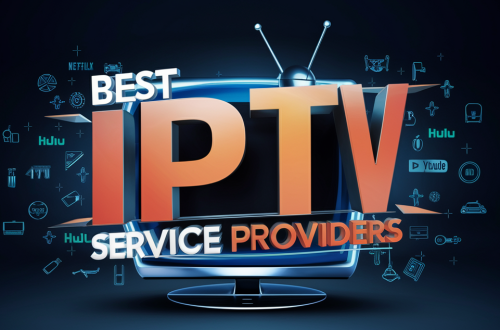In the rapidly evolving landscape of media consumption, Internet Protocol Television (IPTV) stands as a transformative force, reshaping how we access and experience television content scandinavia iptv. IPTV represents a convergence of traditional broadcasting methods and the vast capabilities of the internet, offering viewers unprecedented flexibility, interactivity, and choice.
Understanding IPTV
IPTV delivers television services over an internet protocol (IP) network, allowing users to stream media content in real-time rather than through traditional satellite or cable formats. This method utilizes a broadband connection to deliver TV channels, on-demand videos, and interactive features directly to users’ devices, including smart TVs, computers, smartphones, and tablets.
The Technological Backbone
At its core, IPTV relies on a sophisticated infrastructure comprising:
- Content Delivery Networks (CDNs): These networks optimize the delivery of media content, ensuring smooth streaming and minimal latency.
- Middleware: IPTV services often integrate middleware platforms that manage user interfaces, billing, and interactive features like video-on-demand (VOD) and electronic program guides (EPGs).
- Encoding and Streaming Servers: These components encode media content into digital formats and distribute it across the network to ensure high-quality playback.
Key Features and Benefits
- On-Demand Viewing: IPTV allows users to access a vast library of on-demand content, enabling them to watch their favorite shows and movies at their convenience.
- Interactive Services: Viewers can engage with interactive TV services such as real-time voting, gaming, and social media integration directly from their television screens.
- Multi-Screen Viewing: With IPTV, subscribers can watch TV on multiple devices simultaneously, ensuring flexibility and convenience for modern lifestyles.
- Personalized Content: Advanced IPTV systems leverage user data to offer personalized recommendations and tailored content suggestions, enhancing the viewing experience.
Market Impact and Growth
The adoption of IPTV has significantly disrupted the traditional broadcasting industry, prompting broadcasters and telecom operators to adapt to changing consumer preferences. The global IPTV market continues to expand, driven by increasing internet penetration, rising demand for high-definition (HD) content, and the proliferation of smart devices.
Challenges and Considerations
Despite its advantages, IPTV faces several challenges, including:
- Bandwidth Requirements: HD and Ultra HD content demand substantial bandwidth, which may pose challenges in regions with limited internet infrastructure.
- Content Licensing: Securing rights for broadcasting and distributing content across multiple regions and jurisdictions can be complex and costly.
- Security Concerns: Protecting content from piracy and ensuring secure transmission of sensitive data are critical considerations for IPTV service providers.
Future Trends
Looking ahead, IPTV is poised to continue its evolution with emerging technologies such as:
- 5G Integration: The rollout of 5G networks promises to enhance IPTV capabilities by offering higher speeds and lower latency, supporting seamless streaming experiences.
- AI and Machine Learning: These technologies will play a crucial role in refining content recommendations, enhancing user interfaces, and optimizing network performance.
Conclusion
IPTV represents a paradigm shift in television viewing, offering unparalleled convenience, interactivity, and personalization. As technology advances and consumer expectations evolve, IPTV is set to redefine the future of television, promising a dynamic and immersive entertainment experience for audiences worldwide.





